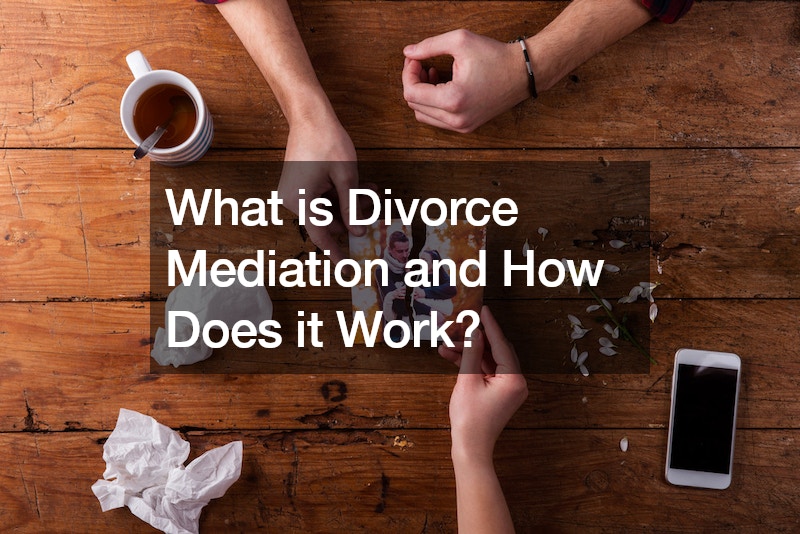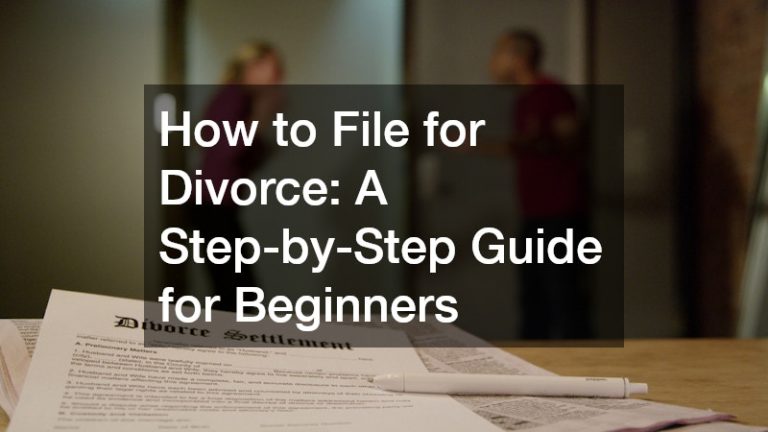
Divorce can be a challenging and emotionally taxing process, but many couples find that mediation offers a more amicable and cost-effective way to dissolve their marriage. In this article, we will explore what divorce mediation is, how it works, and why it can be a beneficial alternative to traditional litigation.
Understanding Divorce Mediation
Divorce mediation is a process in which a neutral third party, known as a mediator, helps couples work through the various issues involved in their divorce. These issues typically include division of assets and debts, child custody and visitation arrangements, child support, and spousal support.
Unlike traditional divorce proceedings, which often involve adversarial court battles, mediation encourages open communication and cooperation between spouses. The goal of mediation is to reach mutually acceptable agreements that address the needs and concerns of both parties.
How Does Divorce Mediation Work?
1. Initiating the Process: Couples typically initiate the mediation process by contacting a divorce mediation service or a qualified mediator. They may choose to attend mediation voluntarily or be required to do so by the court.
2. Domestic Violence Screening: Before mediation begins, the mediator will conduct a domestic violence screening to ensure the safety and well-being of both parties. This step is crucial in creating a safe and supportive environment for mediation.
3. Individual Sessions: In many cases, the mediation process begins with individual sessions between each spouse and the mediator. These sessions allow the mediator to understand each party’s perspective, concerns, and goals for the mediation process.
4. Joint Conferences: Once the individual sessions are complete, the mediator will schedule joint conferences with both spouses and their attorneys, if applicable. During these meetings, the mediator facilitates discussions on various issues and helps the couple explore potential solutions.
5. Open Communication: Throughout the mediation process, the mediator encourages open and honest communication between the parties. This may involve brainstorming ideas, expressing concerns, and negotiating compromises to reach agreements on key issues.
6. Creating Agreements: As agreements are reached on different aspects of the divorce, such as property division or child custody, the mediator helps document these agreements in writing. These written agreements are often referred to as a “memorandum of understanding” and serve as the basis for the final divorce settlement.
7. Legal Review: Once the mediation process is complete, the parties may choose to have their written agreements reviewed by their respective attorneys. Legal review ensures that the agreements are fair, legally enforceable, and in the best interests of both parties.
8. Finalizing the Divorce: After any necessary revisions are made to the agreements, they are incorporated into the final divorce decree. This decree is then filed with the court, officially dissolving the marriage.
Benefits of Divorce Mediation
There are several reasons why couples may choose divorce mediation over traditional litigation:
1. Cost-Effectiveness: Mediation is often more cost-effective than going to court, as it typically requires fewer attorney fees and court costs.
2. Faster Resolution: Mediation can often resolve divorce cases more quickly than litigation, allowing couples to move forward with their lives sooner.
3. Greater Control: Mediation gives couples greater control over the outcome of their divorce, as they actively participate in the decision-making process.
4. Less Adversarial: Unlike litigation, which can be adversarial and combative, mediation encourages cooperation and collaboration between spouses.
5. Confidentiality: Mediation proceedings are confidential, which means that sensitive information shared during mediation is not disclosed in court.
6. Customized Solutions: Mediation allows couples to tailor solutions to their unique circumstances and needs, rather than relying on one-size-fits-all court rulings.
7. Reduced Conflict: By promoting open communication and mutual respect, mediation can help reduce conflict and tension between spouses, which is especially beneficial when children are involved.
Mediation in High-Conflict Cases
In high-conflict divorce cases, mediation can present unique challenges and opportunities. While traditional litigation may escalate tensions and prolong the legal process, mediation offers a more collaborative and flexible approach to resolving disputes. This topic explores strategies for effectively managing conflict, ensuring the safety of all parties involved, and protecting the interests of vulnerable individuals, such as children. It delves into the role of the mediator in fostering constructive communication, de-escalating conflicts, and guiding the negotiation process toward mutually acceptable solutions. Additionally, it examines the importance of creating a supportive and respectful environment during mediation sessions and explores techniques for addressing power imbalances and managing emotional dynamics. Overall, this topic highlights how mediation can offer a viable alternative for resolving high-conflict divorce cases with greater efficiency and effectiveness.
Conclusion
Divorce mediation offers couples a constructive and cooperative way to navigate the complexities of divorce. By providing a supportive environment for open communication and negotiation, mediation empowers couples to make informed decisions about their future. Whether it’s resolving property disputes, creating parenting plans, or addressing financial matters, mediation can help couples reach agreements that meet their individual needs and goals. If you’re considering divorce, exploring the option of mediation may be worth your while.
.






